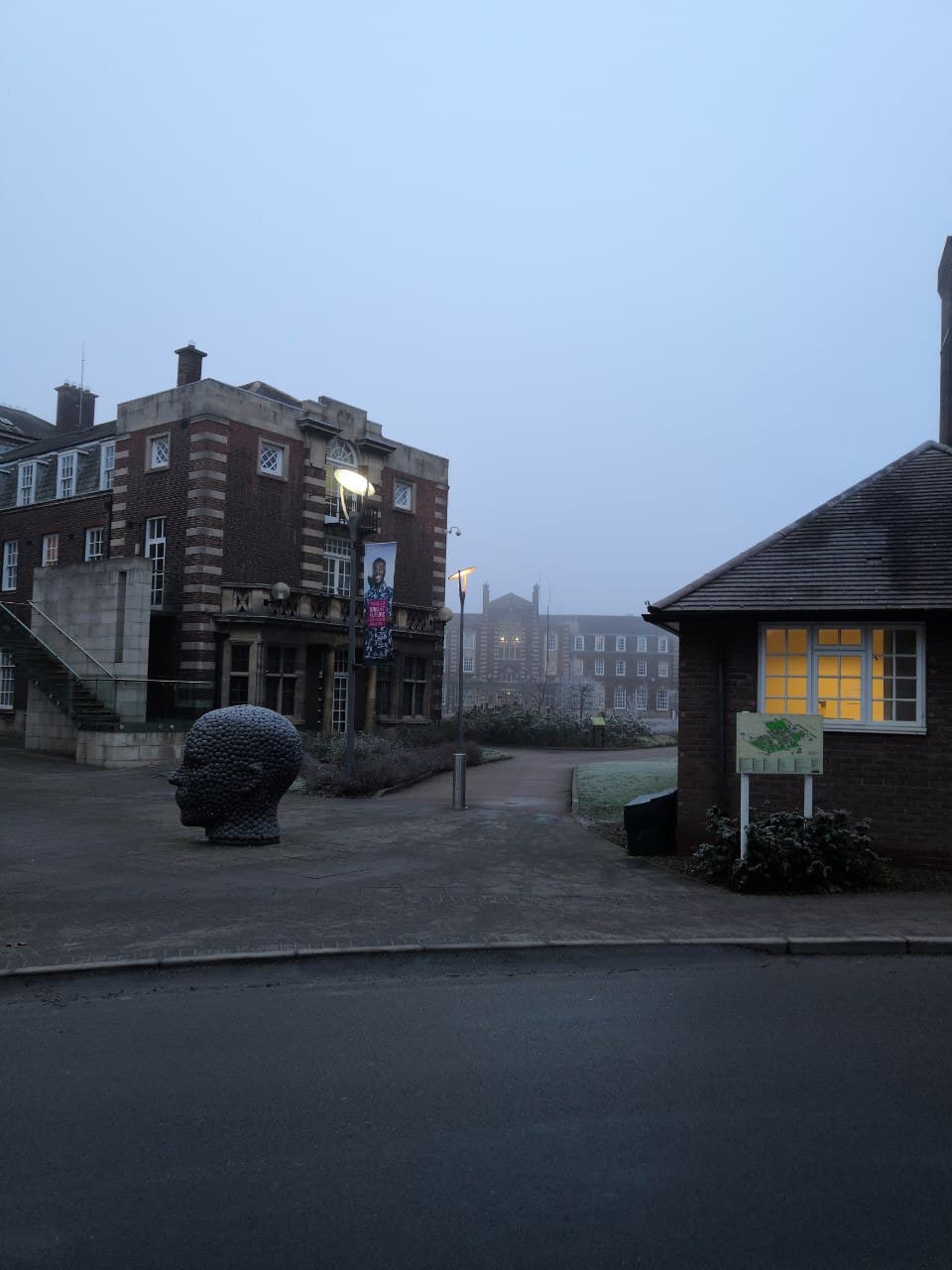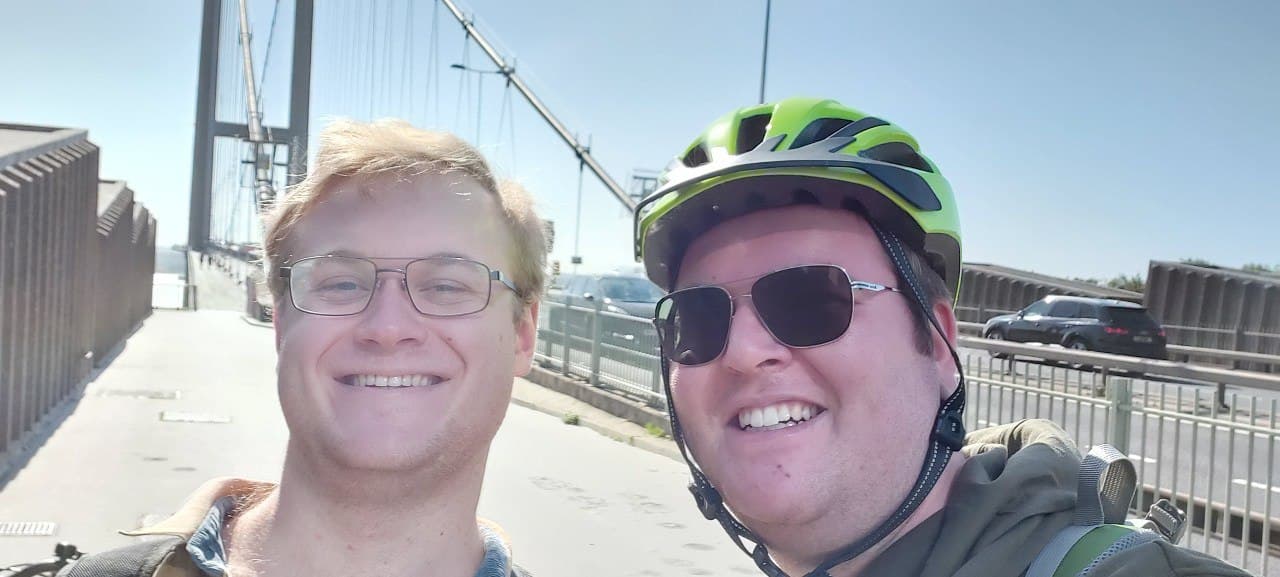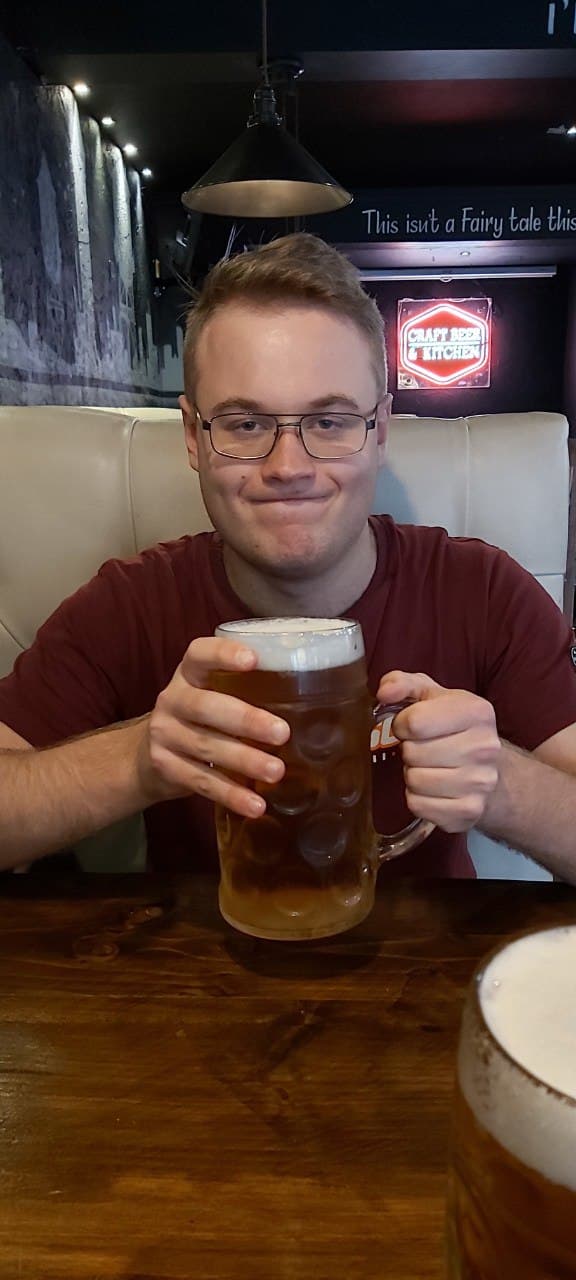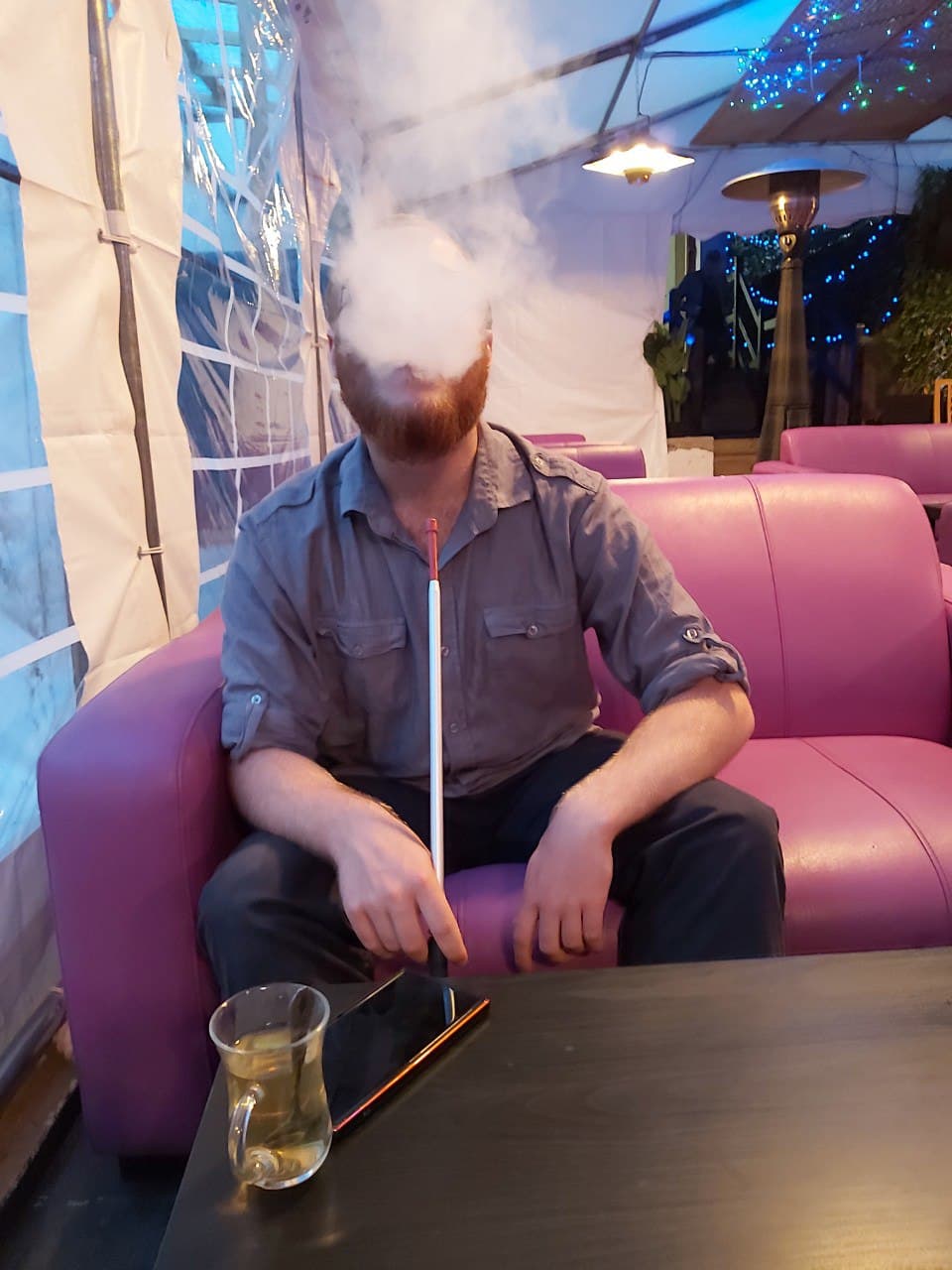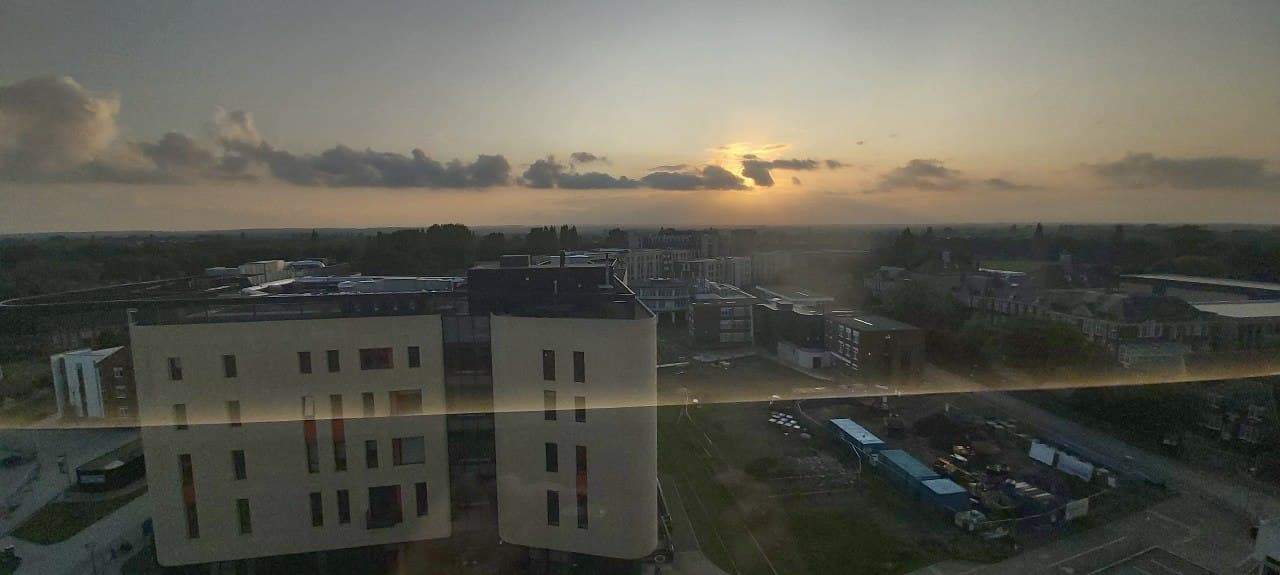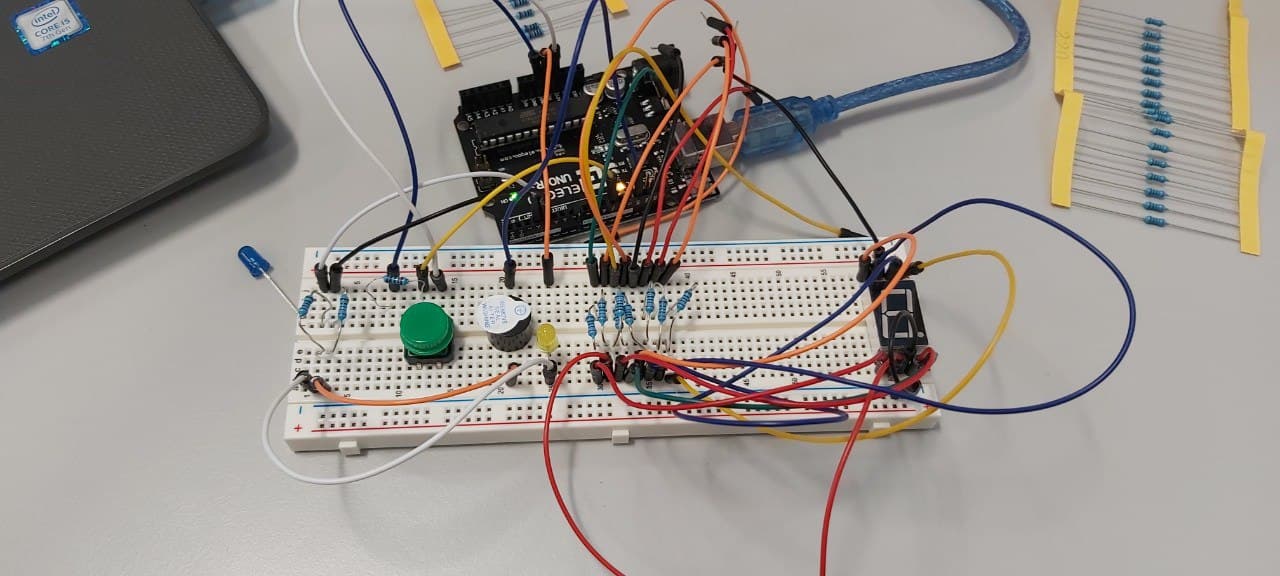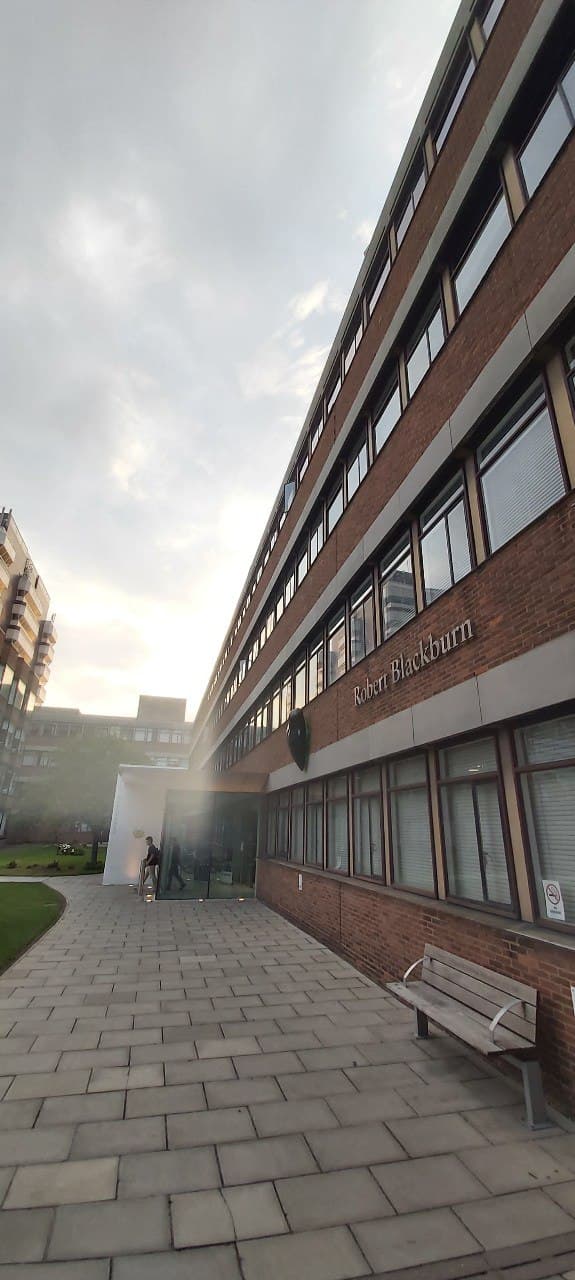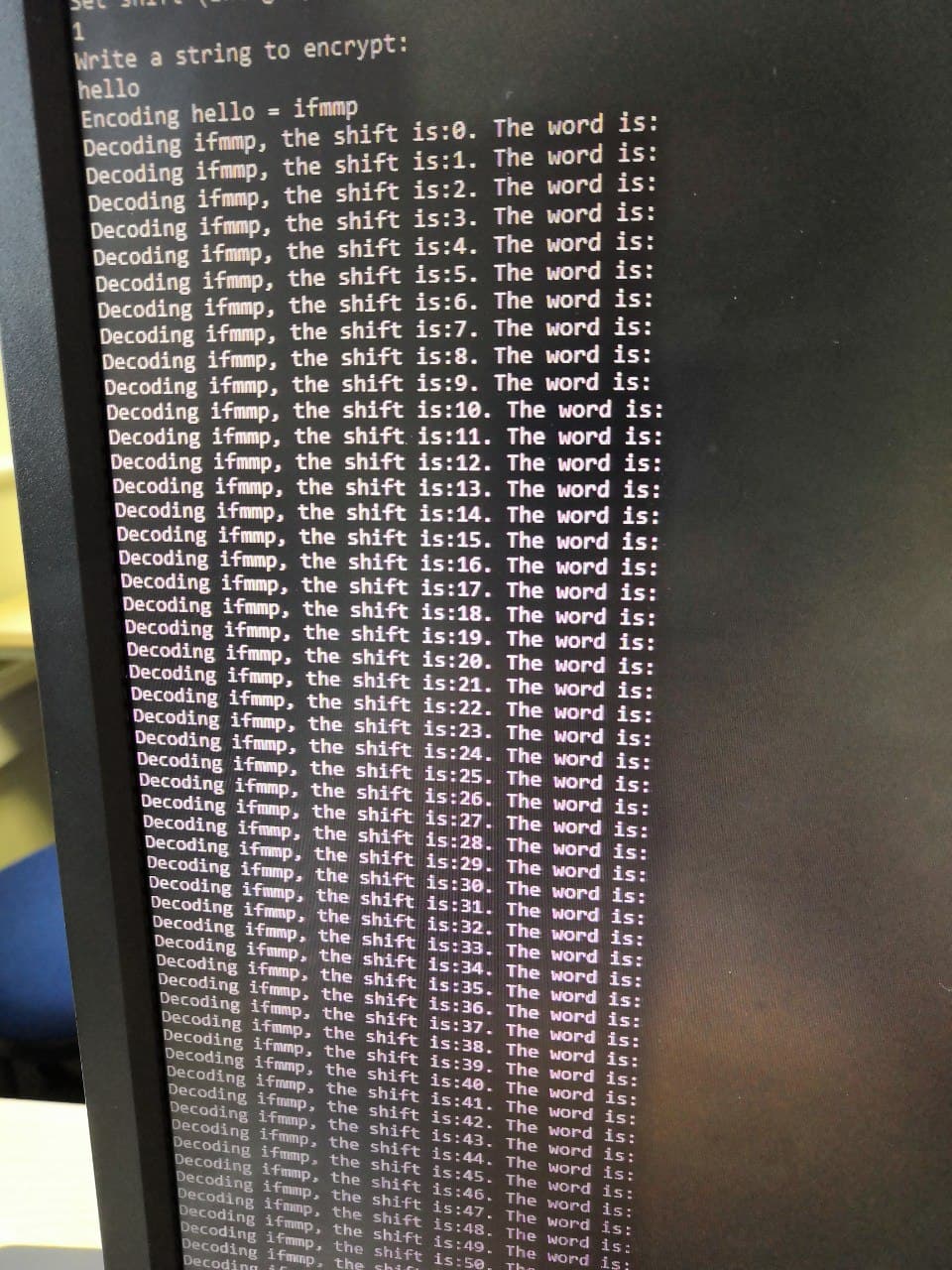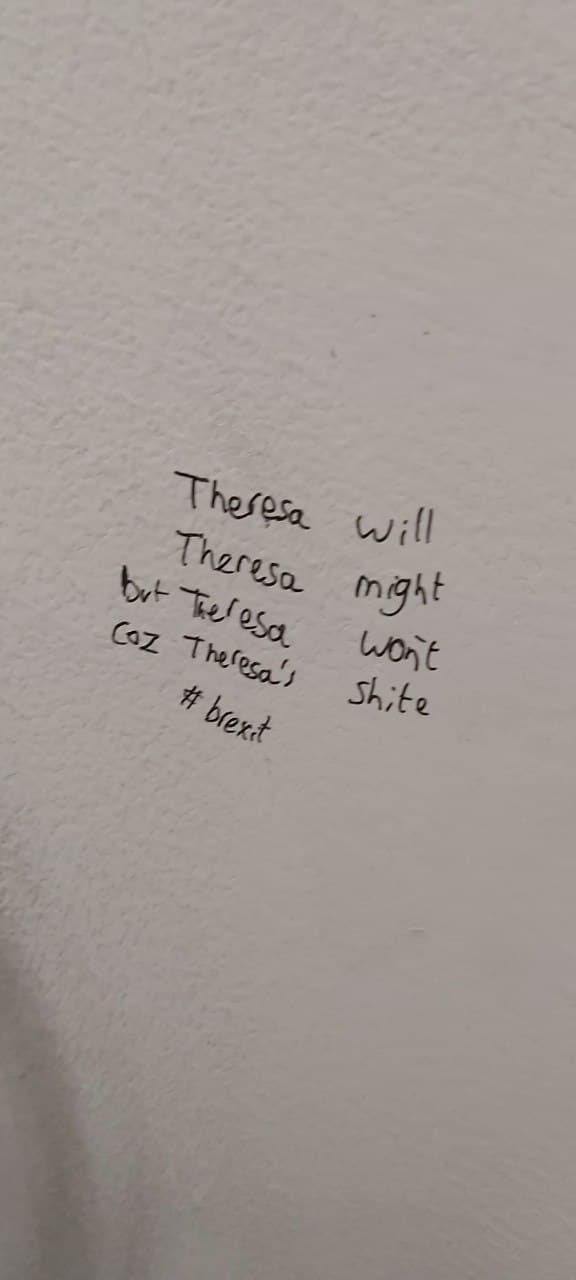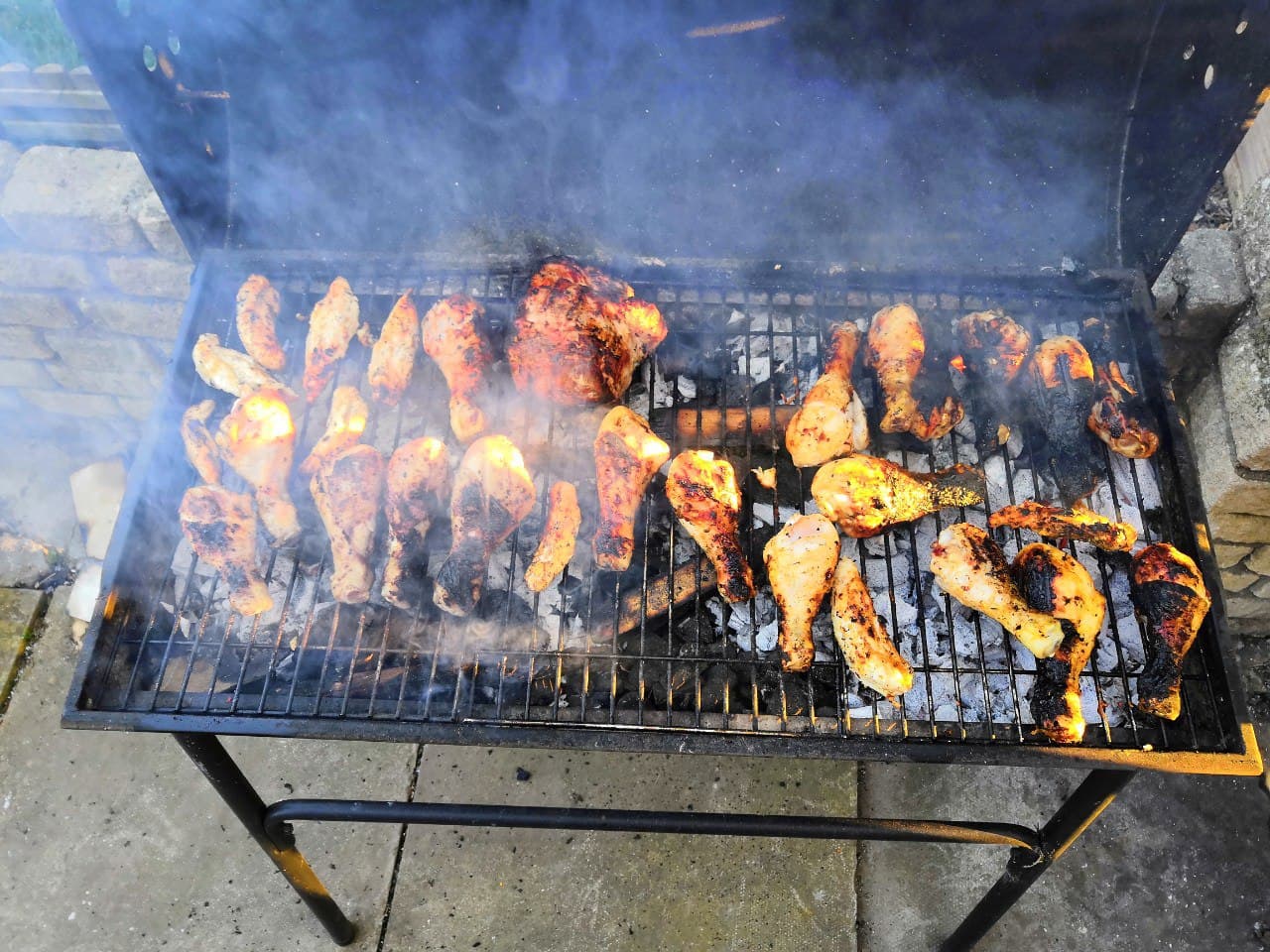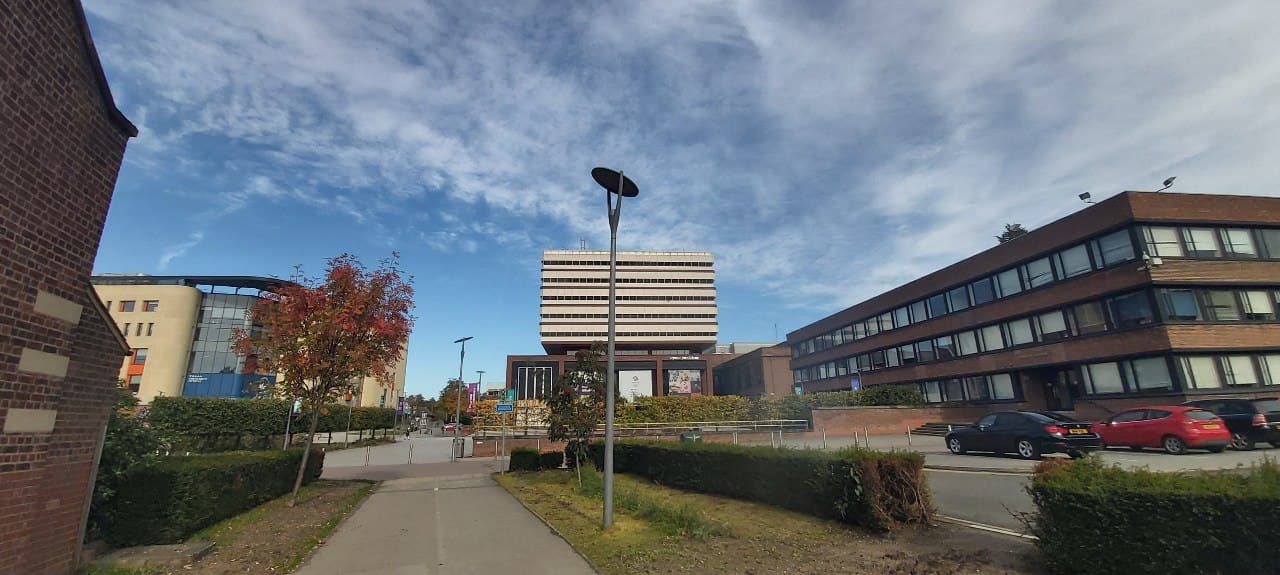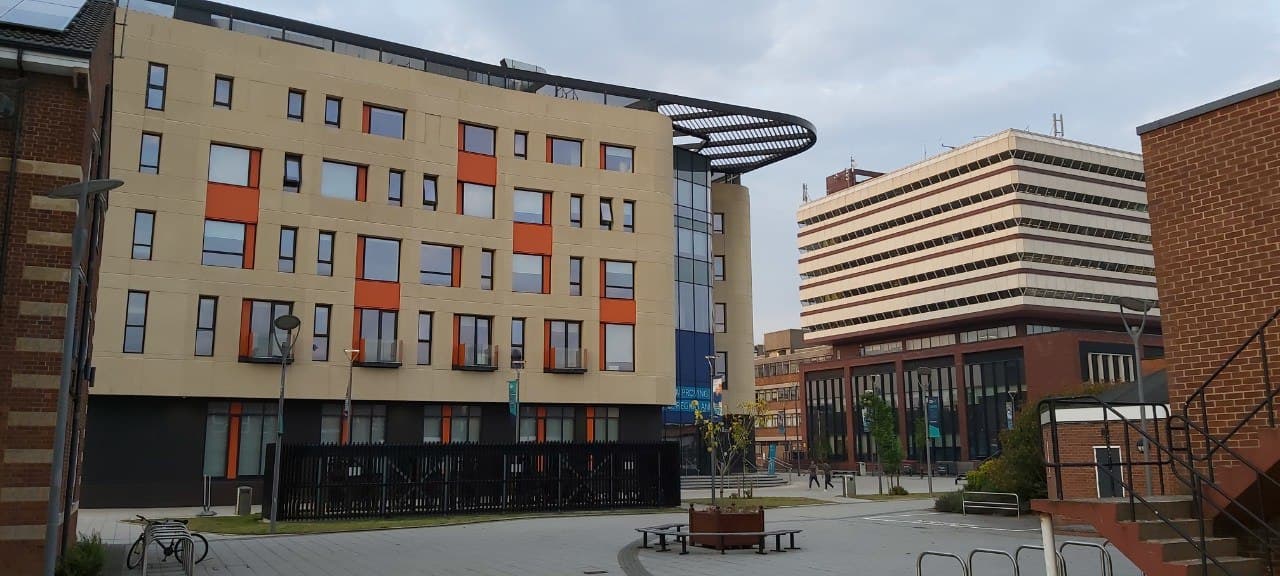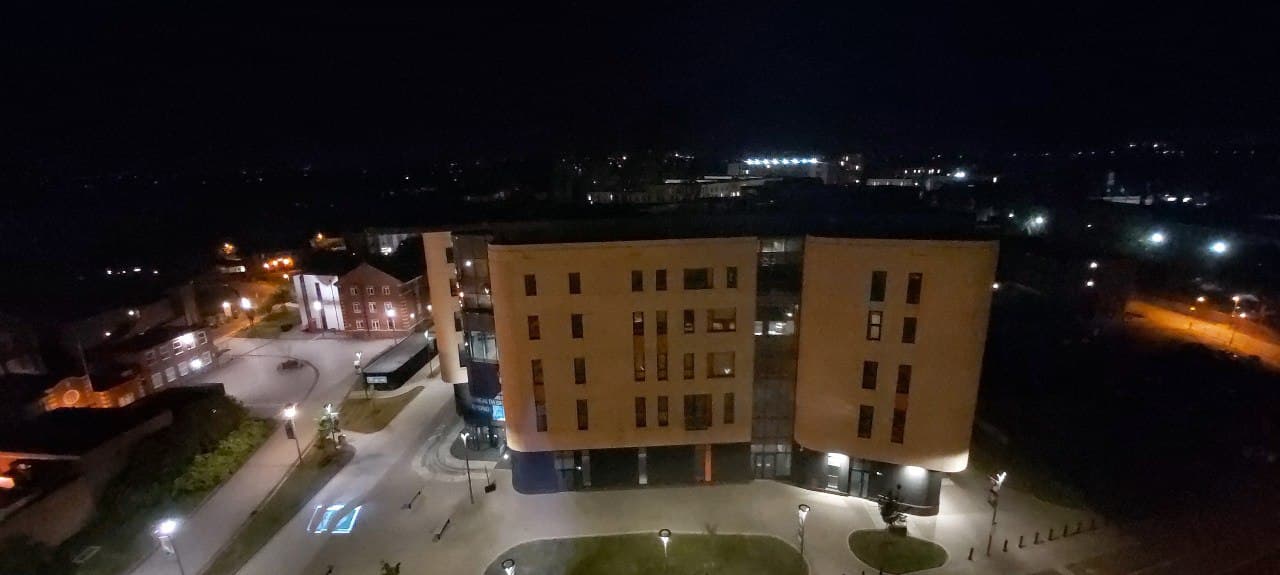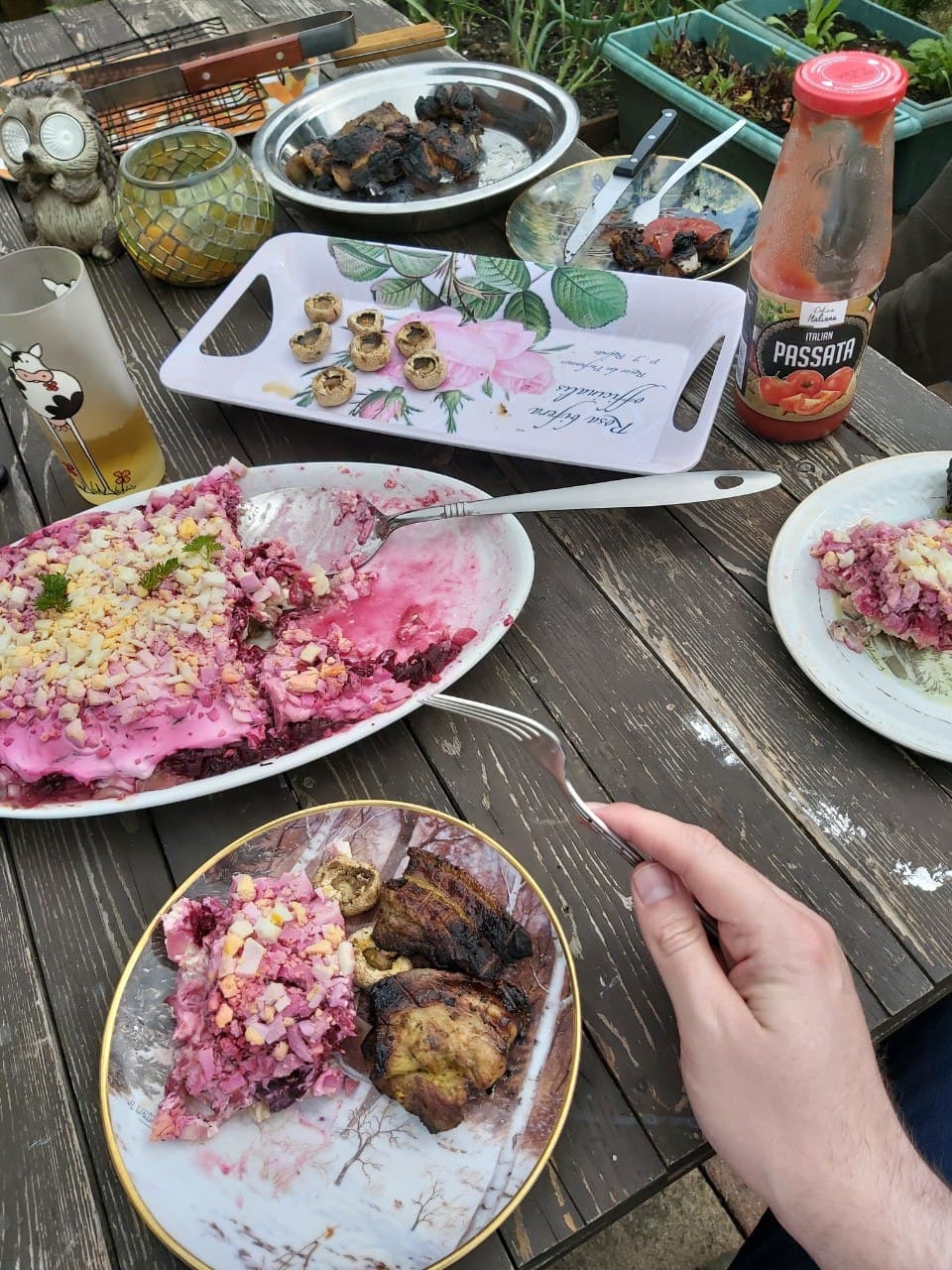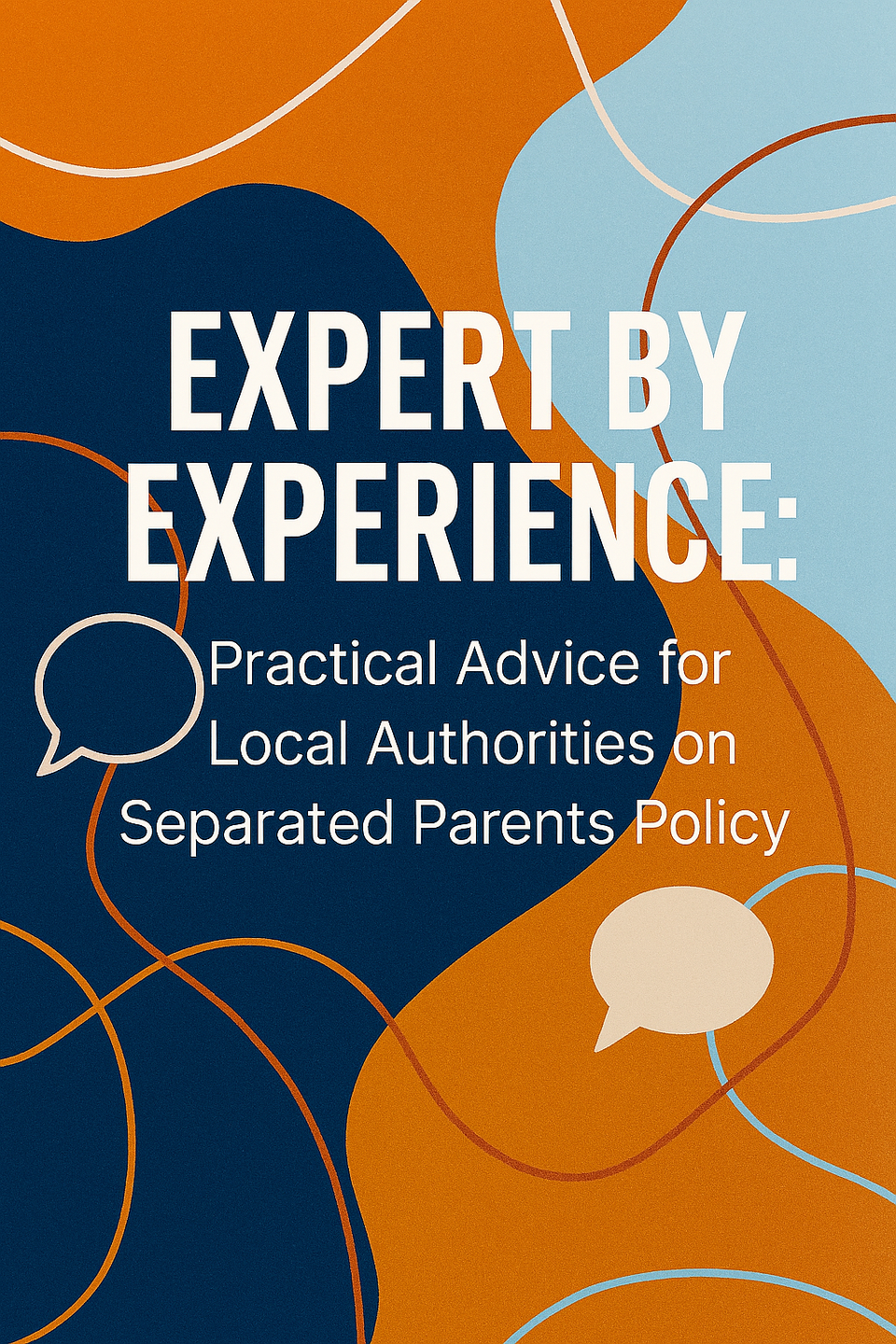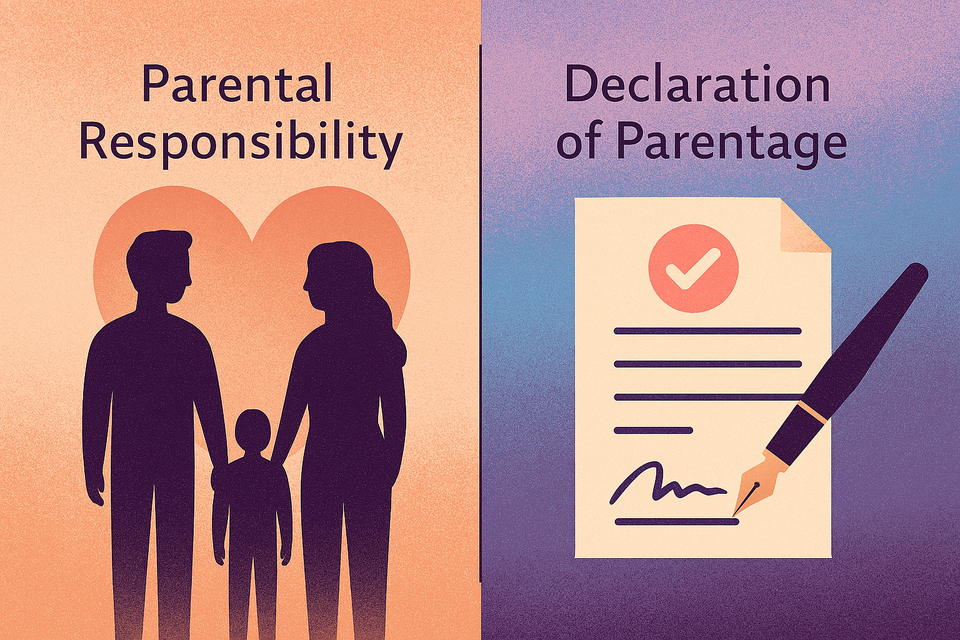Year in review: 2021
A review of my journey through 2021 and the progress made in my personal and professional life.
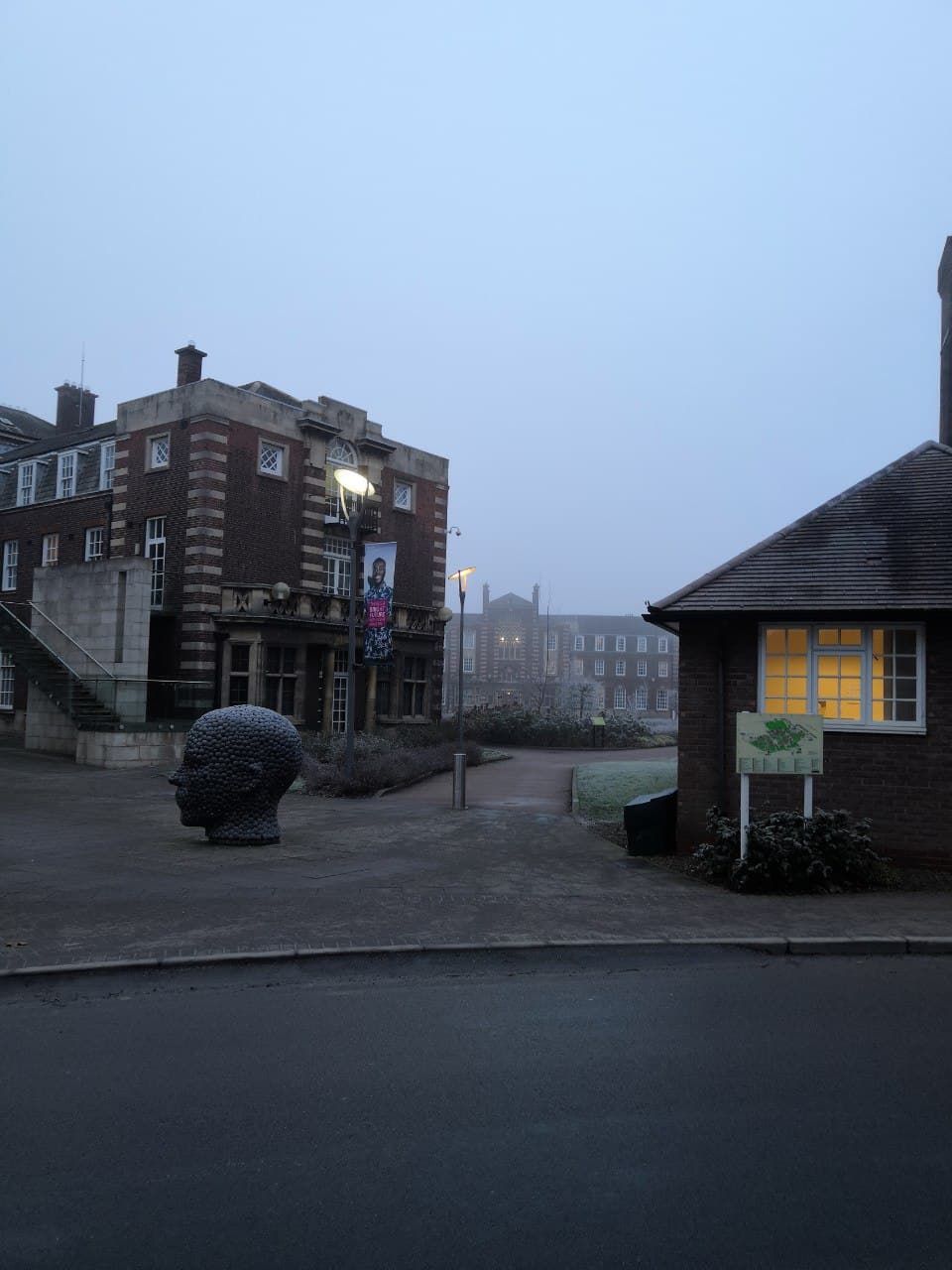
Let me take you back to this time last year, December 2020, when I was worrying about the grades for my dissertation project initiation document. For the uninitiated, that's quite a large document which specified what my dissertation was about and how I planned to deliver it, along with a project timeline, proposed tools, and domain research, would be released. Of course, I was also worrying about other coursework due around that time - Embedded Systems and Data Mining; both intensive projects. The first supposedly being a group project, which involved building a mock heating system in C, but in the end being delivered solo by myself. The latter focused on turning seemingly useless data into objectively useful, usable datasets whilst justifying the decisions made. In the project, we used medical information as a reminder that projects could cost lives if incorrect decisions are made, so no pressure.
Needless to say, then, that the pressure was mounting and I was quite stressed. This was further compounded, although I tried not to let on as much, by the fact that as the subject matter of my dissertation focused in part on family conflict, it brought recurring thoughts of my daughters and all of the milestones that I was missing as I progressed through University. At times, these thoughts led to depressive lulls in productivity and energy, which made the whole experience much harder.
It's fair to say, given the above, that family conflict is a subject that I have extensive knowledge of through personal experience - whether it be representing myself at court, working with CAFCASS, Social Workers, and other local authorities, or working with the police when false allegations were made against me. I didn't find it funny at the time, but it was quite a desperate act really and those chickens came home to roost very quickly (although, I obviously can't go into too much detail).
Inevitably though, the dissertation got pretty emotional given the very obvious personal nature, but I still very passionately believed that a technological solution for managing family conflict would work; and I still do.
The main problems as I saw them initially were, firstly, that the present legal and social care system pushes extended family members away when trying to find a resolution - for instance, when I first applied for contact with my (then only) daughter back in 2013, CAFCASS, the social worker, and the court were only interested in hearing from my ex-partner and me in respect to contact arrangements for the contact order to be made and where we would meet to conduct handover. At no point were questions asked about other support that could be put in place or how extended family could or should be involved - which was an issue given the relationship between my ex and me ran very hot and cold. In later years, this question was raised but only when the children were put on Child Protection Plans as a result of my ex-partner's actions, and communication between us became absolutely impossible without arguments breaking out. Why even let it get to that point?
The second issue being that legal aid was cut for the majority of Family Court proceedings through LASPO in 2013 meaning that for the majority of people who sought to resolve contact issues no longer had access to a solicitor unless they could pay privately. Of course, Legal Aid remains available if there has been domestic abuse or violence involved but generally, only one person gets legal aid - the alleged victim.
If you're confused as to why I've said alleged victim as opposed to automatically believing allegations, it's because I don't believe the feminist line that all allegations should be believed or that everyone who makes allegations is a 'survivor' or 'victim'. I'm also of the opinion that there's no such thing as a 'fairer sex' which is backed up by the following cases:
- Woman has boyfriend FaceTime her during his 12 hour shift because she doesn't 'trust females'.
- Rapist Teacher - Deputy Head Julie Morris Giggled as she and partner raped and abused girl under 13. (Found guilty of two counts of rape)
- Woman admits child neglect in Cleveland Police fake illness case
- Woman filmed offering cocaine to monkey then flushing it down toilet
- Stephanie Lazarus - Murdered crushes new partner out of jealously.
- Jennifer Pan - Arranged murder of her parents.
- Dalia Dippolito - Tried to have her boyfriend killed after obtaining ownership of his house.
- Casey Anthony - Murdered Daughter and partied for a month before reporting the child missing.
- Jodi Arias - Murdered love interest after she found out he was interested in another woman. Backstory video here.
In essence, it's important to listen to allegations but remain objective because humans, unlike computers, are capable of significant deception owing to the hierarchy of interests (see figure A below). A very good example of precisely such a conflict of interest is that when LASPO was introduced, despite domestic abuse declining over a number of years, there was an absolute rise in applications for non-molestation orders.

The rise can only be attributed to the requirement for 'trigger evidence' for legal aid. Trigger evidence is the documentation required to 'evidence' that a person is a victim of domestic abuse. The problem is that non-molestation orders can be applied for and granted without a person's knowledge - a process known as ex-parte. Despite this, the evidential criteria are still met even if there is no evidence of the allegations being made.
Imagine then, that you are a woman, because they are mostly applied for by women, with very raw emotions going through a divorce or separation and thinking the very worst of your once adored lover being told by a solicitor that you will need to pay thousands, potentially tens of thousands for representation unless you can evidence domestic abuse of some description. Self and selfish interests crash against competing interests, as shown above in Figure A.
There are very few risks in alleging abuse; society almost welcomes allegations - and whilst it should be called out, it should not be made preferable to making adult decisions and cooperating with a former spouse.
The reason for this is that, aside from obviously causing an imbalance in justice, is that it skews the figures for domestic abuse and other crimes whilst simultaneously taking away legal counsel for those accused. In one case, a father facing allegations of pedophilia in the family court was told that he was not eligible for legal aid because he had a disposable income of £10,000 a year yet costs could run 20 times this disposable income and doesn't solve the issue at hand.
The Law Society's review of LASPO concluded that Legal Aid is no longer available for many who need it, that those who are eligible find it hard to access, wide gaps in provision are not being addressed, and more crucially that LASPO has had a detrimental impact on the state and society; yet it remains in full effect with the government still playing catch up.
LASPO was supposed to encourage more families to mediate, but this has not been the case.
The third issue is that of information and communication. Unfortunately, this is a multi-stage issue given it involves so many different layers, so I will try to keep it brief.
First, when authorities are involved with a family, lots of information is generated. For example, if a family member takes a child to a medical appointment, a social worker visits, or authorities have cross-agency meetings. This does not automatically mean that the rest of the family will receive an update. I found out in my own case that my daughters had received broken bones and that their surnames had been changed, yet no authority had deemed it appropriate to contact me, and my ex certainly didn't do so either. This causes safeguarding issues because information is not available to all family members, and children cannot communicate with people who could otherwise safeguard them. To add to this, Authorities generally believe it's better to stay quiet unless there's a very serious issue, so communication can be very lackluster.
The second issue is that much of the information generated by authorities is subjective, based on wishes and feelings, but not objective - such as precise times, GPS coordinates, metadata, or other electronic transactions. In that event, it's very difficult for families and authorities to begin to make decisions given that an opinion doesn't constitute fact, or even very good evidence. This is more so the case if such wishes and feelings come from a child who could be manipulated into giving 'adult' answers or concealing information. Since the introduction of LASPO, this has obviously been more of an issue because people are representing themselves at court, so what you have in effect is an avalanche of he said, she said cases based on subpar evidence and hurt feelings being advocated by armchair detectives with very little information, and likely missing information.
Parentull could solve that by helping families log events, a scenario that was suggested was families 'checking in' for handover. The fallback if a parent didn't turn up for contact would be to check in for contact in any event and be able to evidence to the court that a parent had turned up at the specified location for contact. The burden then falls on the other parent to explain why, with evidence, they failed to turn up for contact. If that evidence consists of selfish waffle, then it's unlikely to convince a judge that there was a valid reason for stopping contact.
The final issue is that in many cases, some people refuse to communicate with their ex-partner - whether on the advice of their solicitors or some other reason. This makes it very difficult to obtain information about children and for children to keep contact with other family members. At the moment, the solution to this is for the parent who is 'alienated' to keep making subject access requests periodically or obtain access to a co-parenting app, the latter of which requires consent from the very person who refuses to communicate - so very unlikely. This is a human problem but also one forced on families because the very nature of divorce through the family court system is combative. Courts are by their very history and nature places of verbal (and sometimes physical) jousting; there is always a winner and always a loser so it's no wonder these situations absolutely cripple families.
Apps such as Parentull could solve this issue by opening up access to school, medical, extracurricular, financial, and other forms of information to parents who have been exiled from their children's lives. Personally, I would also advocate for grandparents and other wider family members to be able to access the information as well, but let's take one step at a time. Others might argue that Parentull is a dud because human problems cannot be solved with technology and to some extent, I agree; Parentull relies on people in conflict to come to the table and input information in the best interests of their children, which is a hard thing to do - however, I am optimistic that given the legal dilemmas that face most families and the increasingly costly and technology-focused world we live in, we can encourage families to resolve their conflicts through co-parenting apps - amongst other solutions.
Why then am I bringing you to this time period and talking about all of the issues which led to the creation of Parentull?
I'm bringing you to this time period because I want to discuss the advancements made since that time, not just with Parentull but in other aspects of my life as well - A year in review! Not that I particularly want to blow sparkles up my own backside, but I do think it's productive to reflect on progress and perhaps look to the future - and there has been a lot of progress this year; as there will be next year.
On that note, I should mention that prior to worrying about the PID and other university deadlines, I ended up popping up on the BBC to talk about Parentull and my time in family courts. The interview came about as I'd donated £250 through Parentull to the Pepperells Solicitors Christmas Meals campaign. I felt very fortunate, having had to use food banks myself in the past, to be in a position to feed 10 families across the Humber region. To me, this very simple act (for it was just that), was about giving back to the community that helped my children and me in our time of need; but the reality is that nobody should have to use such services, at least not in what is supposed to be a 'civilized' society - but whilst there are people who do need help, I'll gladly support where I can - as indeed, Parentull did this year by donating another £50 to feed another 2 families.
The rest of my final BSc year at University was spent working on Distributed Systems Programming, Computer Systems Infrastructure Management, and the Dissertation which I'd very cheekily managed to wangle as Parentull. I'll mention that the former two modules were very interesting; Distributed Systems narked me a little bit in the marking because I received my lowest mark of the year in this module over seemingly very picky points which wouldn't be an issue in industry; one such case being that an incorrect hash was returned during testing, a very small fix given the code; but nonetheless, I lost marks. Computer Systems Infrastructure Management was equally as interesting given it was focused around Linux administration and for those who don't know, I've spent an awful lot of time with Freeside, the student-run Linux cluster at the University of Hull.
My only gripe with the module was that it used one of the 'harder' distributions Arch, as opposed to a beginner-friendly distro such as Ubuntu or Fedora. That may have been deliberate, of course, to make students adapt to best practices because the same (or at least, very similar) principles apply across most Linux distributions, but using the beginner-friendly distributions allows you to make mistakes - as I did repeatedly as a teenager. Arch, on the other hand, is much more... uh... fussy... for beginners.
As for the Dissertation Project Initiation Document, it was a hit. I received 85/100 marks for it. Quite an achievement considering the mean in the cohort was 70.79, the lowest was 39, and the highest was 94. On that high, I went off to develop the software and write the main report.
As I've already mentioned, Parentull sought to solve quite a vast array of issues with a technical solution. To overcome those issues, it was best to simply allow people to log information in the first instance. I devised the idea of also having circles, based on the idea of Family Circles, though I did originally call them tribes but I thought that had been a bit overdone in the startup world. I thought it was important to maintain a group where adults could communicate given the issues I mentioned previously; whilst communication might sometimes get heated, at least communication is still happening and algorithms / filters could be put in place to defuse those types of situations.
Unfortunately, I missed the April submission owing to circumstances outside of my control. Irrespective, I submitted in August under mitigating circumstances.
With the extra time, I was able to improve the project. I had originally pitched the idea to write an Android application based on the idea that Parentull would be focusing on families in conflict who would not have a lot of money or much technical knowledge. I know it could be argued that Android does require more technical knowledge, or at least patience, to operate and maintain, but the main point is that Android devices are cheaper so for the vast majority of people these are the preferred smartphones irrespective of their technical knowledge.
My research into family conflict certainly does seem to back up the fact that families in conflict will not have a lot of disposable income as well. In fact, for most of these people, they will be living a life in poverty - even if outwardly, they appear to be living perfectly good lives. This may also apply to people considered to have a lot of money as well; the fact is that having money and being above the poverty line are completely different.
Despite this, I changed this specific part of the project quite late on and developed a Blazor Project. Blazor is a new(ish) technology from Microsoft that enables the development of Progressive Web Apps using C# and standard web technologies. Users can save the application to their device simply by accessing the website and clicking a 'save to device' button which is presented by their browser. This seemed to provide much less overhead than a traditional application, for instance, it would not need to be submitted to the Play or App stores; neither would it burden the company with technical debt for those specific platforms. It would also be easier to explain than to end users.
Below are early screengrabs of the Blazor Application. If a user tries to access content they're not authorized to access, Figure B (below) shows the screen that would be displayed.
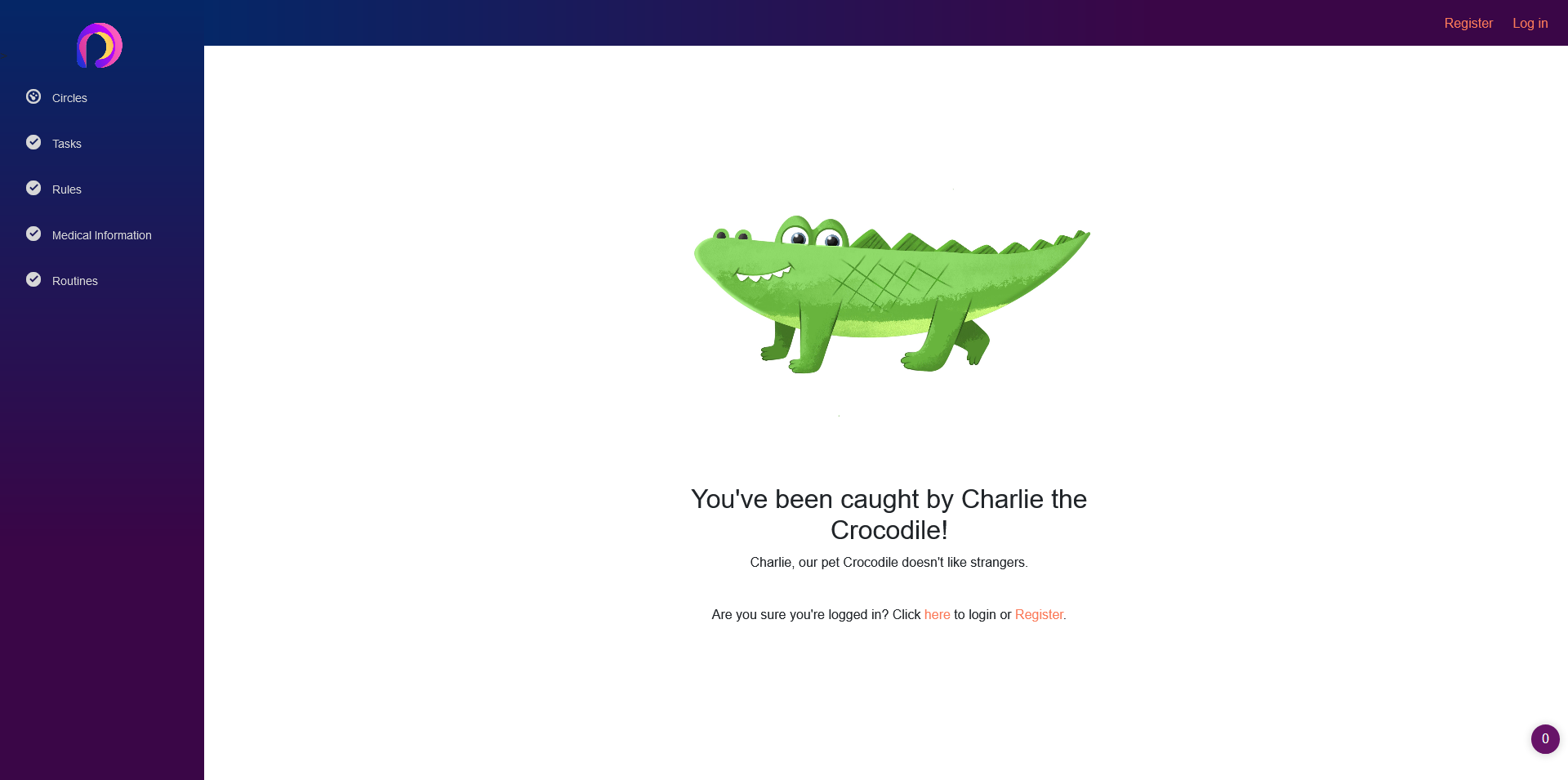
Whilst this looks like a regular unauthorized page, particular attention was paid to creating characters for the application and wider Parentull universe to make the application child and family-friendly. I'll show some of these in a moment.

Figure C (above) shows the screen for creating a medication entry, the idea being that if a child needed to take medication, it could be added to the application and then all family members would know the medication, the dosage, any child-friendly nicknames given to the medication and as a benefit, have that information in their pocket if needed to present it to emergency services or other professionals. When developing the idea, I had thought of the case when my own daughter was presented to hospital with a broken ankle by her stepdad. Having such information on his smartphone would have surely saved a lot of faffing around and scrambling for information; likewise, I have spoken to others over the years who would benefit from having such information at their fingertips.
In terms of the characters and developing the wider Parentull universe, here are some of the characters:









The submission of the dissertation was like a weight off my shoulders. I can still remember the feeling of unrelenting joy as I sat there at my desk having pressed submit feeling the stress lift and thinking that in some small, insignificant way, I had brought myself closer to seeing my daughters again. Figure D shows the time and date of submission; two days before my youngest daughter's birthday.

If you were wondering what my view for that period of time looked like, here it is:

If I had one critique of the dissertation process, it would be about support from the University. Specifically, I had the perfect opportunity because of Covid-19 to conduct research in a nightingale family court that was set up on the University of Hull campus but despite making enquiries, nobody was able to help me establish contact with the right people to talk to about conducting research which is after all, what Universities are supposed to be about.
In comparison, when I contacted Erin Pizzey, the founder of the refuge movement, she was only too happy to help within her capacity (keeping in mind that she is no longer a spring chicken) and couldn't praise Parentull highly enough. She also recommended reading her book, Prone to Violence, which I did do, although I found it at times hard to read. One such instance was when Erin was discussing a couple who had a particularly violent relationship, the man coming from a particularly violent middle-class home where he had been beaten with metal rods and the woman coming from a poorer household. The couple engaged in an abusive relationship where extremely violent sex was their release, in some cases, during these violent sexual episodes, both would bleed, and in others, it would happen in front of the children. This was nauseating reading.
It was a pleasure speaking to Erin, and I hope one day to meet her in person. I highly recommend anyone to view her interviews on Youtube, this one is my favourite.
Of course, despite submitting, I still had a busy day ahead as I was due to meet MKM Boss David Kilburn later the same day to discuss Parentull. I'd met with others as well, for which I am very thankful for their time and feedback. I'm not going to talk about everything David and I discussed, but I'm happy to say that by the end of the meeting, David had agreed to be my business mentor and set some goals. Figure E is the photo I took leaving MKM after the meeting with David.

On the walk home from the meeting, I had to walk past the police station on Clough Road. This was the police station I was taken to after false allegations were made against me. It took me a moment to realise, but it had actually been 3 years since the investigation of the false allegations against me closed. I couldn't believe that I was submitting my dissertation, meeting with David Kilburn, and walking past Clough Road police station on the same day given the date. It felt like a photo-worthy moment just to keep me grounded in the fact that I'd made so much positive progress. Figure F shows the photo taken outside of Clough Road police station.
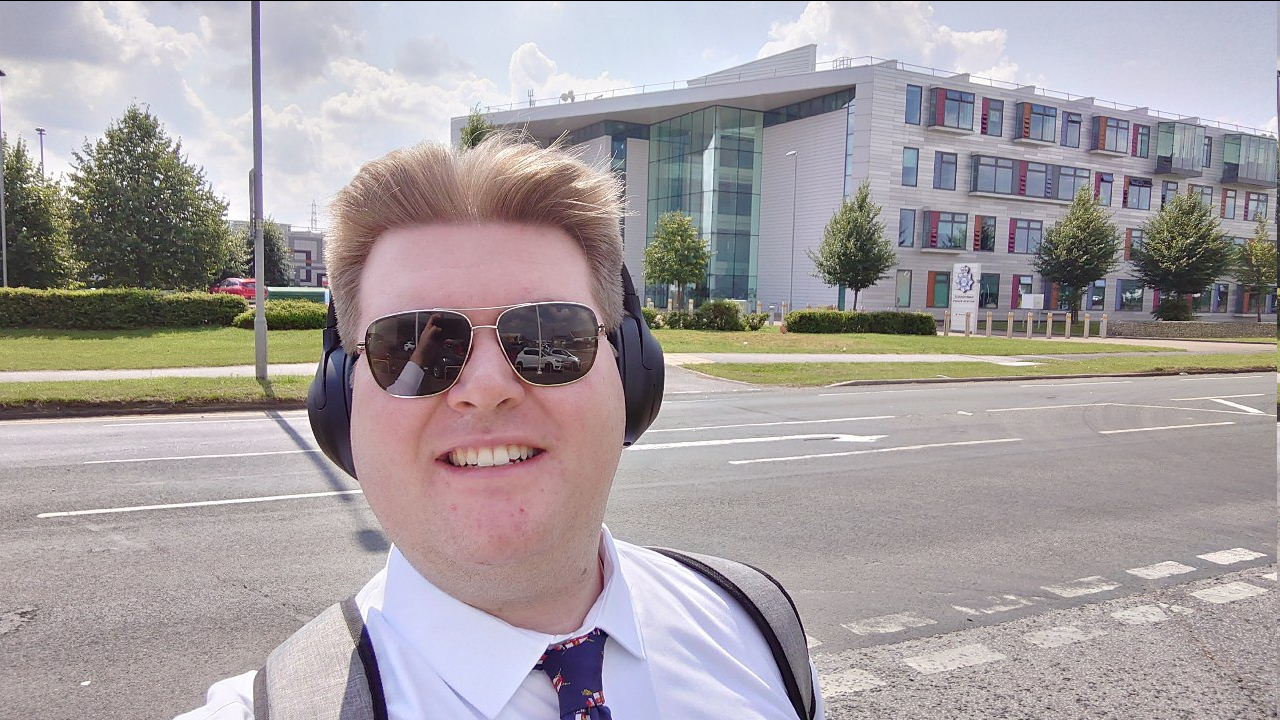
The progress continued as I had an internship lined up with Compass Hospitality, an international hospitality business who wanted some help from a computer science student to connect various systems. Unfortunately, the systems that were supposed to be in place for me to work with did not exist, and so I left the internship after two weeks, but Compass Hospitality still adopted my Cyber Security Policies as I discuss here.
Keep in mind, that I still had not received my degree or even a grade at this point, so it really was an achievement for the policies to be adopted as technically, I was still a mere student.
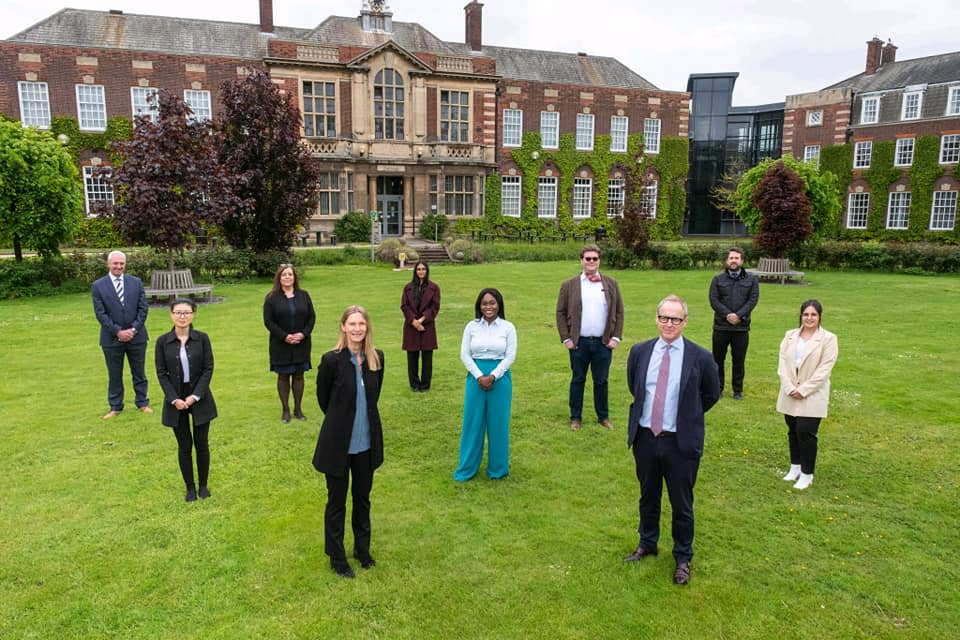
Later in the year, I landed an internship with Pittaway, a 100+ year old company based in Hull who manufacture paint and deliver decorating services. The history of the company is quite fascinating if you enjoy social history, but it's the future of the company that I'm more interested in given that my task is to move the company from mostly paper-based systems to digital apps. It's been very enjoyable so far, but the project is still underway so I can't really say much more about it.
As I previously mentioned, I've also been working with Freeside, the student-run Linux cluster at the University of Hull. 2021 has been a particularly successful year given we got new hoodies, stickers, took press photos, started work on a new website (github repo), launched Hull Blogs, and increased contributions to the Student Resources List, both from Hull Students but also from around the world through Hacktoberfest. Later in the year, we also ran our first Secret Santa, which was very successful if I say so myself!
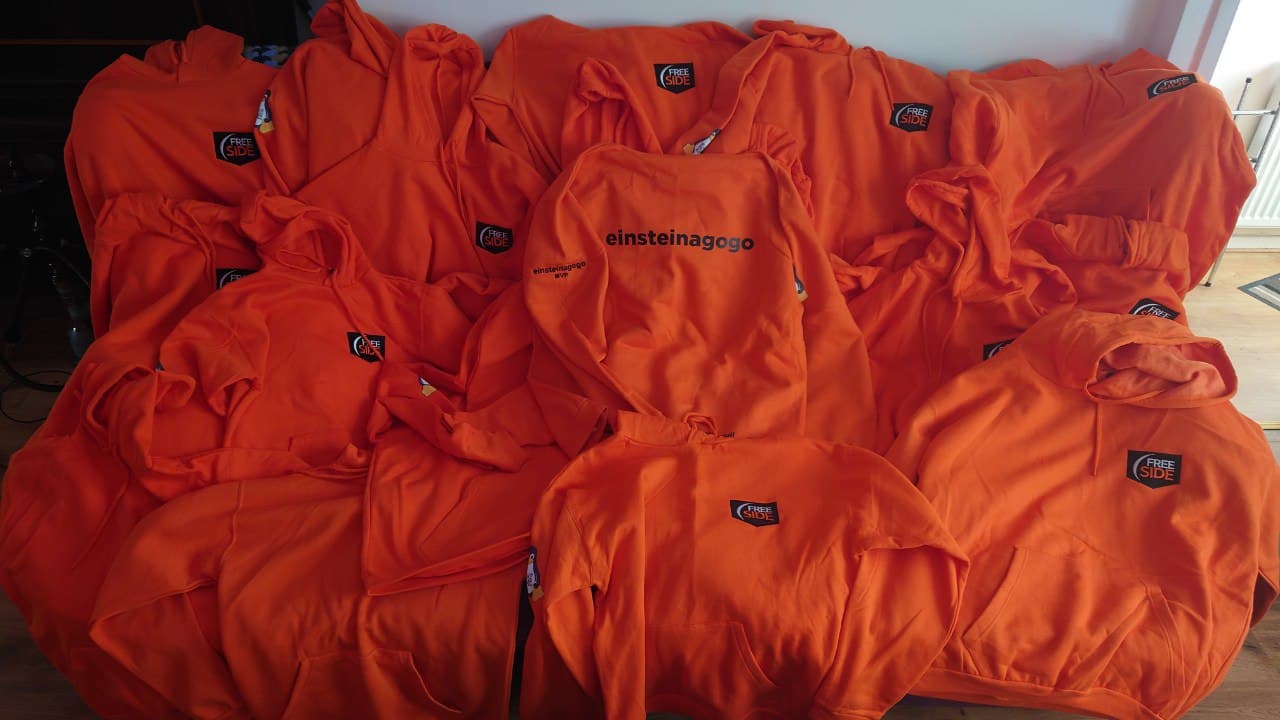
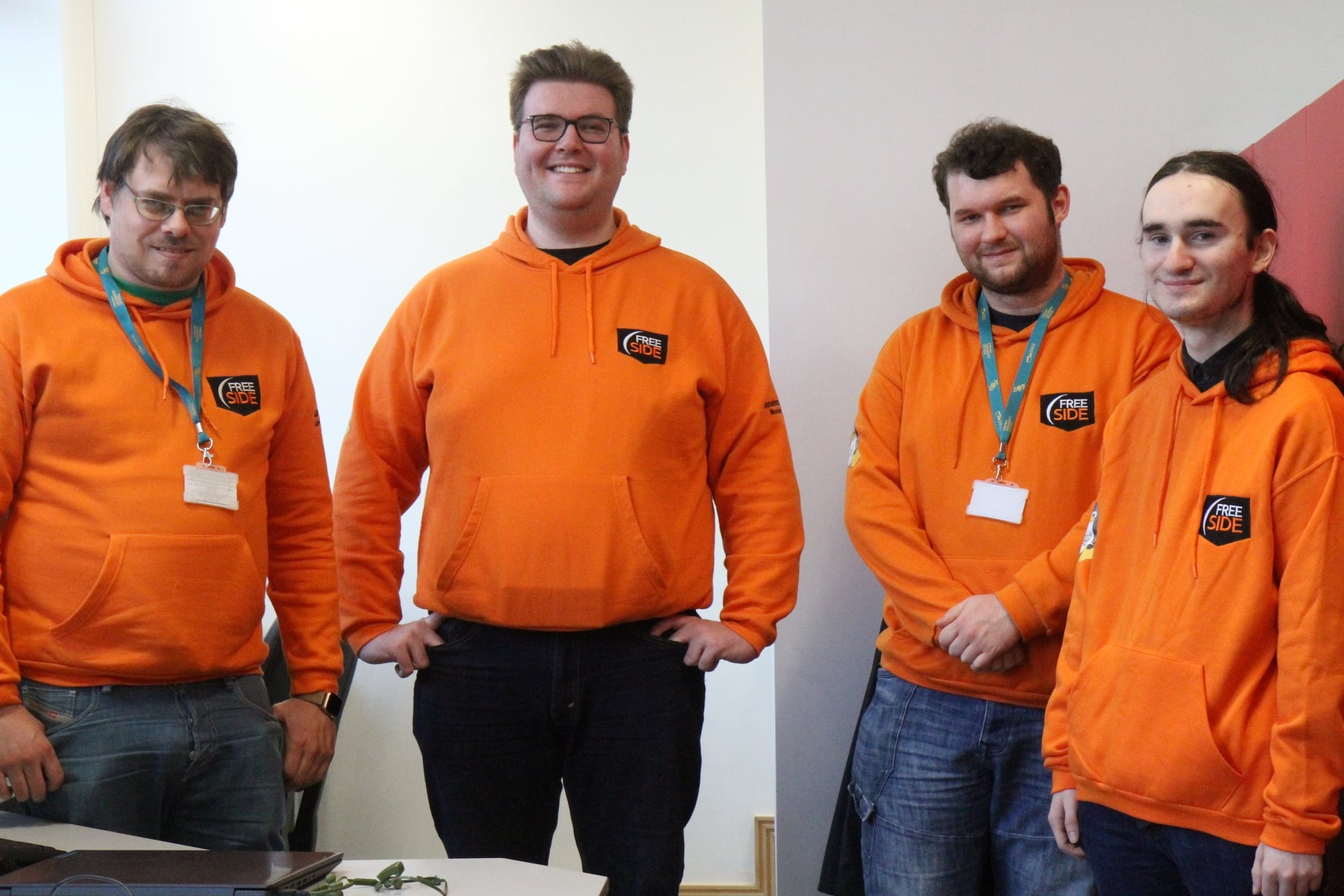
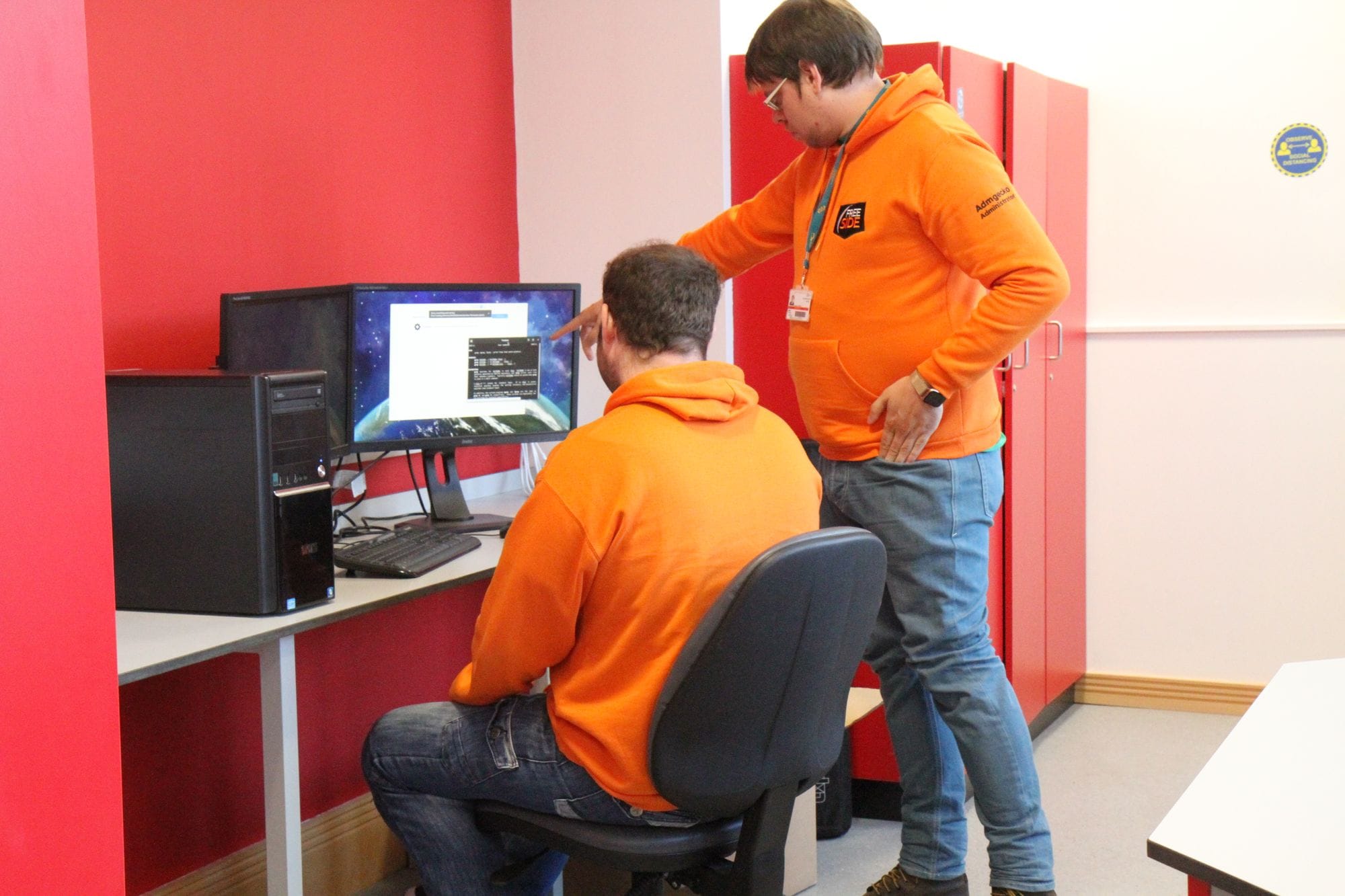
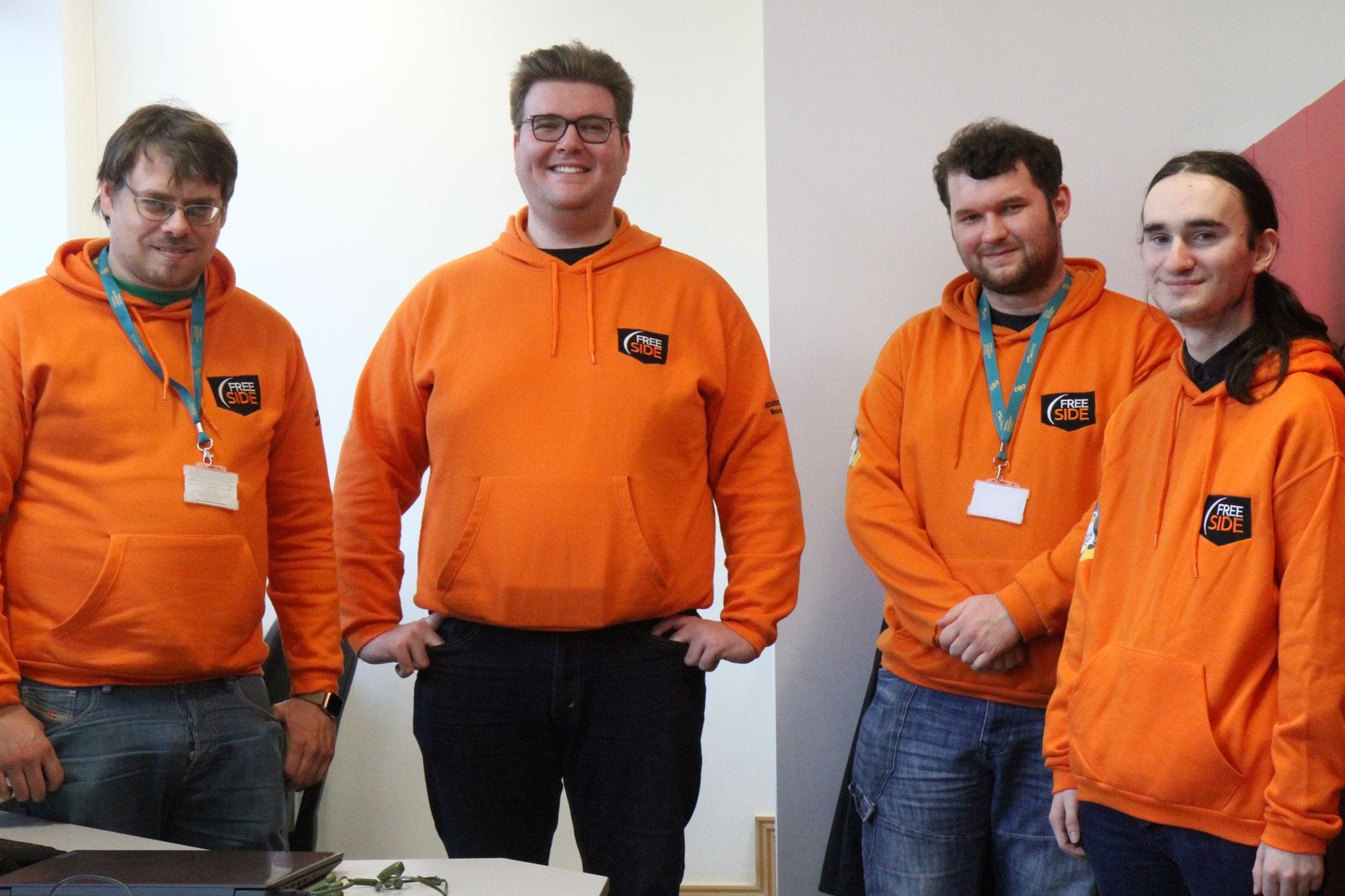
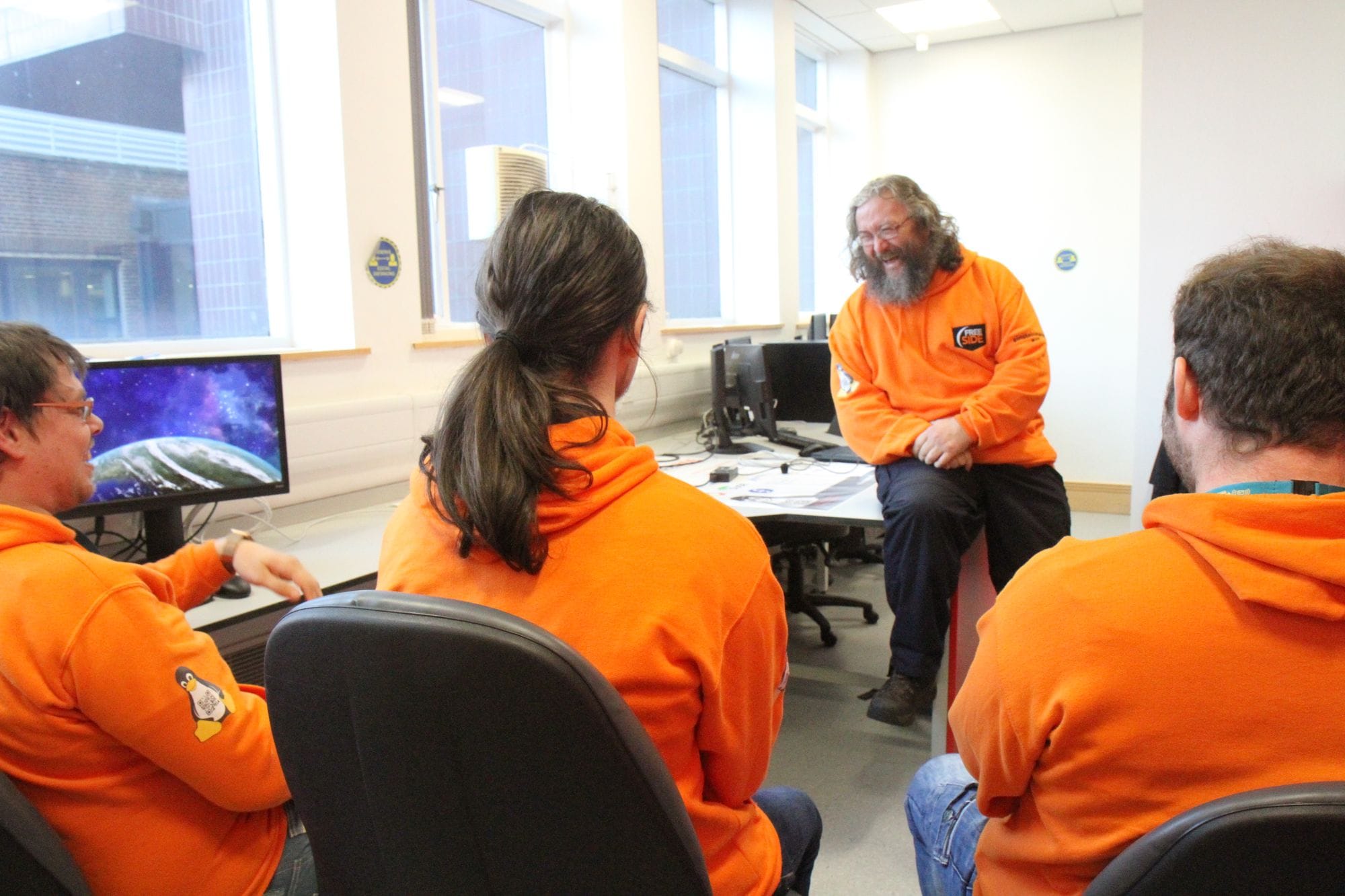
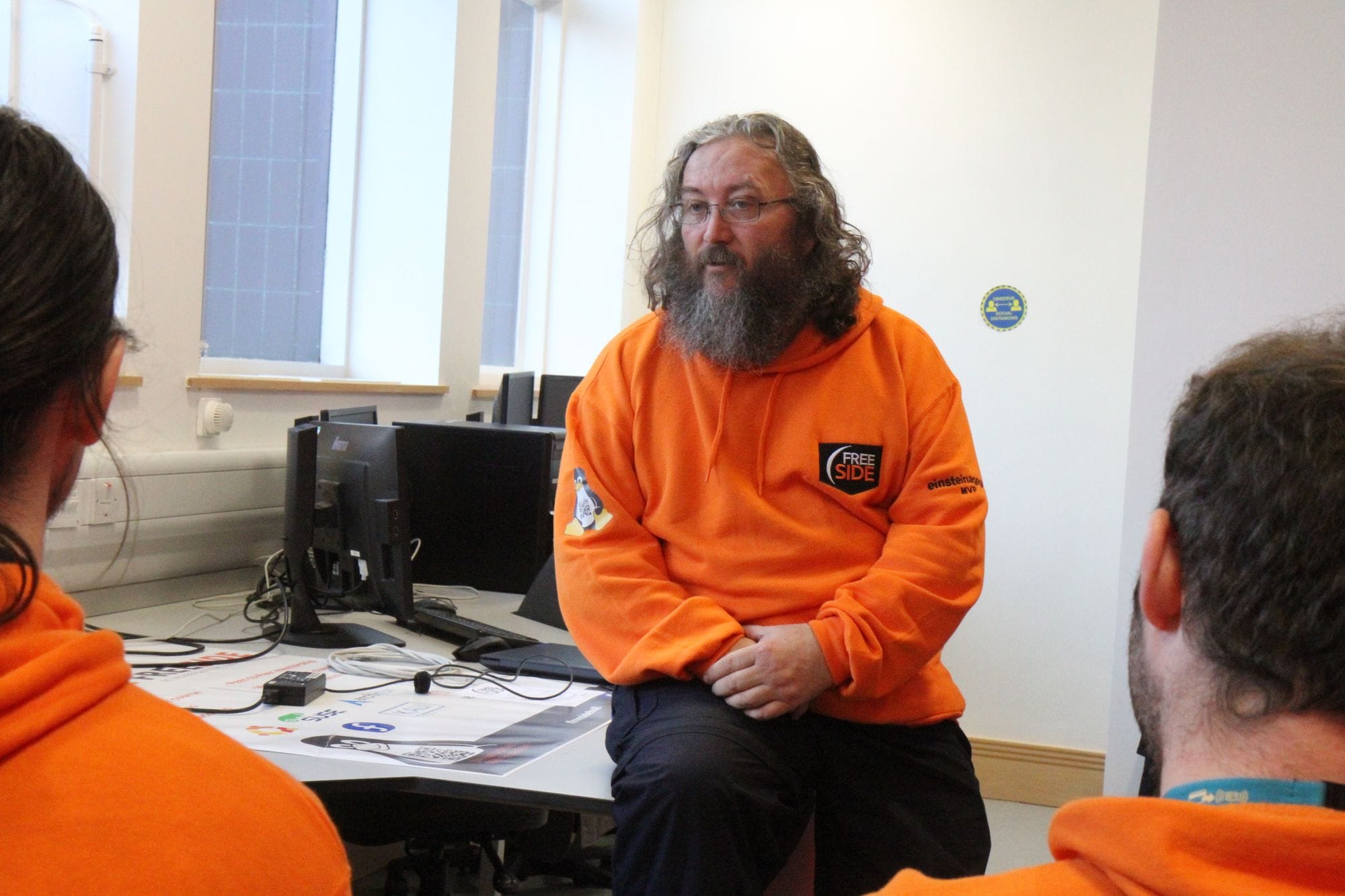
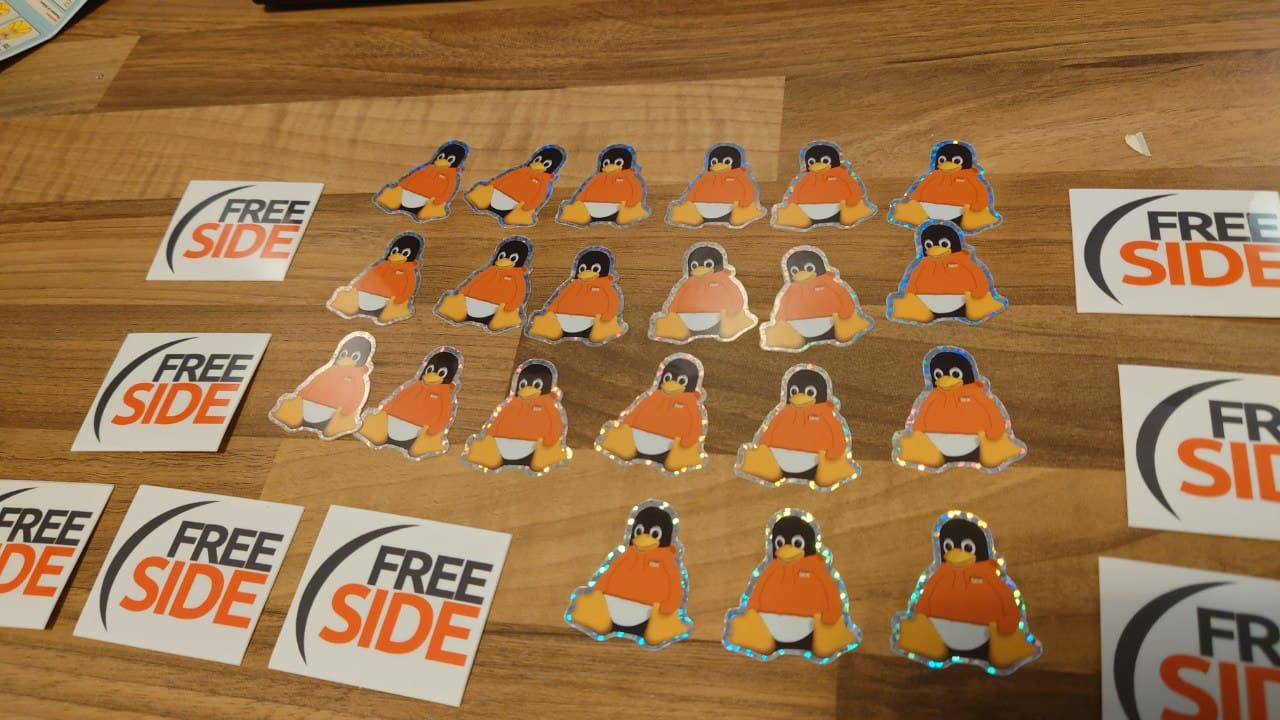
As part of my role in Freeside, I gave a talk for HullCSS, the Computer Science Society at Hull. My talk was on Ethics, Law, and Professionalism. This might seem like an awfully dry topic compared to other computer science related topics, such as machine learning or cybersecurity but it's important nonetheless. Knowing when to say no to a client or employer when they ask for unethical code and when your professional reputation could be called into question are important; though I would argue it is most important to know the law, both about the professional area and wider areas. Whilst I'm not going to discuss them here, you can find the resources for the talk here, the advert for the talk is below.
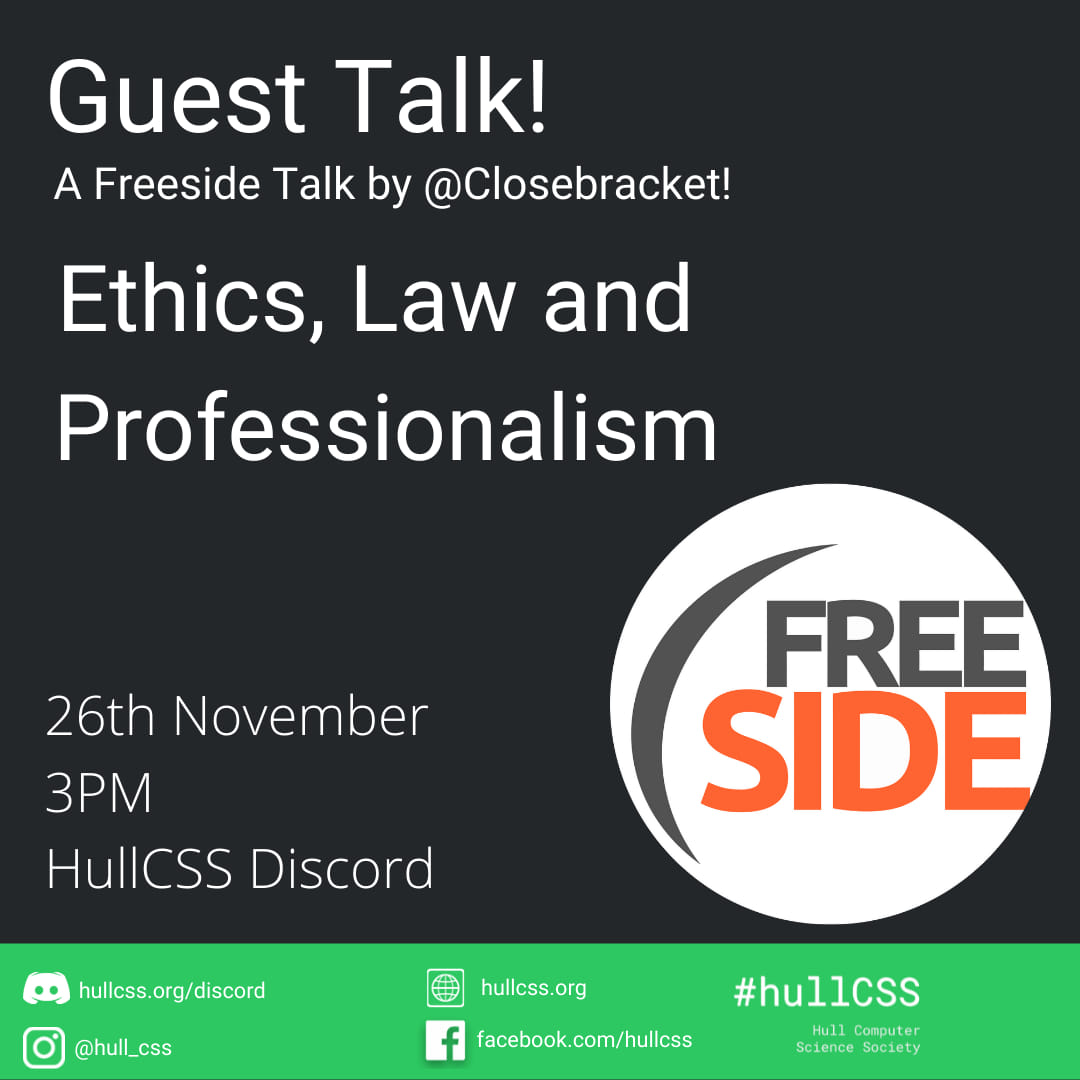
Towards the end of the year, I passed the Azure Fundamentals certification and Completed the TryHackMe Advent of Cyber event - as seen in the below pictures.
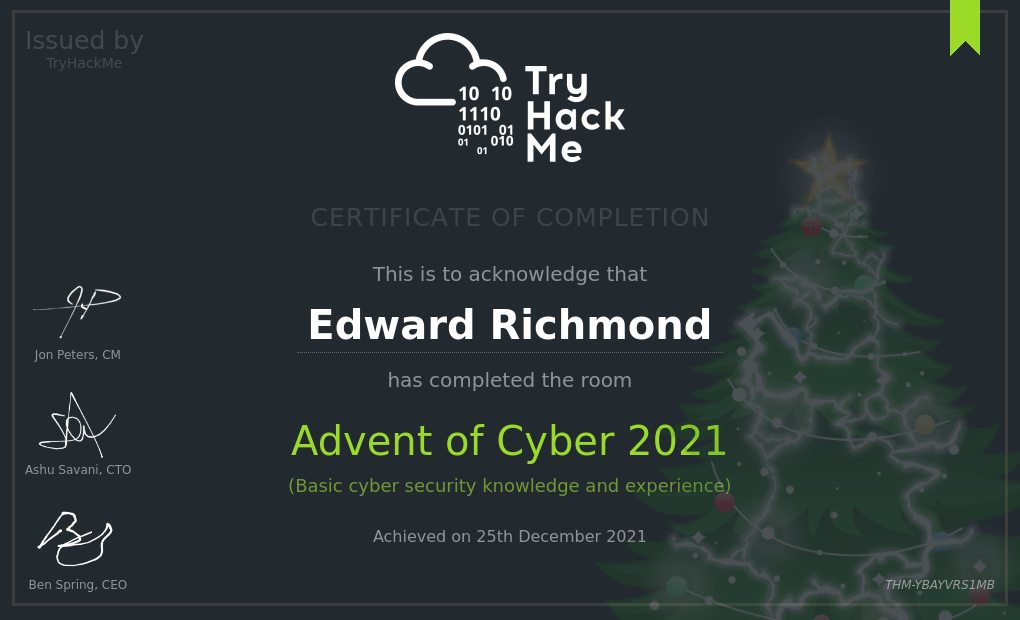
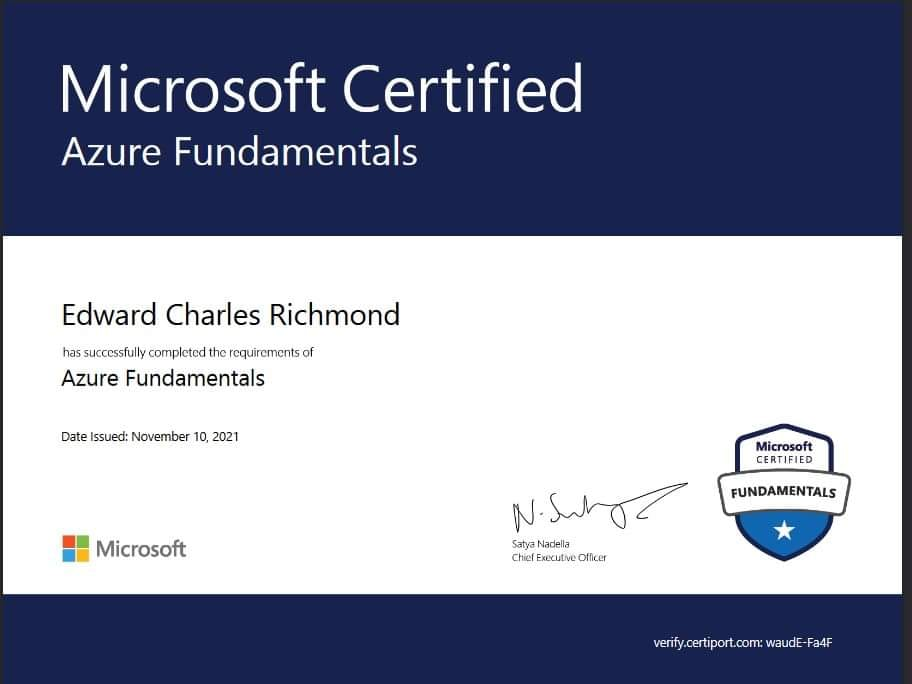
I was also signed up to study a MSc Advanced Computer Science degree pathway, however, opportunities arose for Parentull to grow so I suspended my studies so as to take full advantage of those opportunities.
That brings me to the conclusion. 2021 was an emotional rollercoaster of a year that saw the culmination of my BSc (Hons) Computer Science degree. I achieved a 2:2 which initially made me quite sad given I was 4% off a 2:1 after calculating the grades I'd received; but on reflection, my 2:2 echoes my story in a good way. I went through the degree pathway representing myself in family court proceedings for the first few years, fighting off false allegations and having to liaise with police and children's safeguarding authorities yet despite all that, I've made it through and shown that I can excel to boot. I may not have a 2:1 or a 1:1 but by the same token, I do know how to face adversity and have developed skills that others may not have.
On that note, I think I can safely say that I'm looking forward to seeing what 2022 brings.
